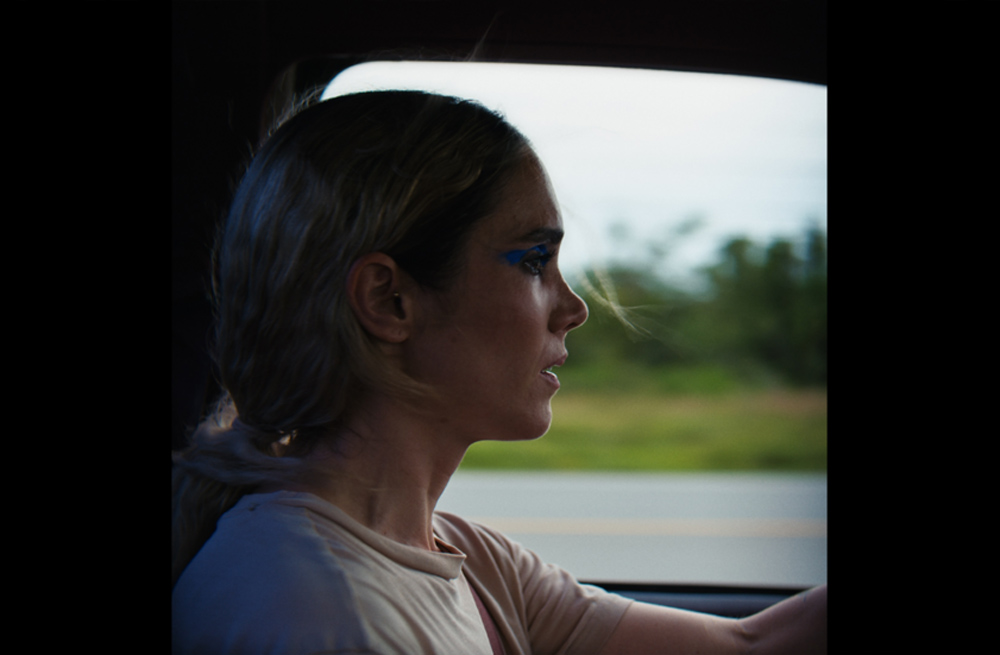All it takes is a look to know why Al (Samantha Smart) does what she does in “Charliebird,” often in the unenviable position at a children’s hospital of performing for the terminally ill as a music therapist. The optimism she projects is sincere amidst dire circumstances, but both she and the patients are conscious of their likely fate – much as their parents can’t believe it – and the rewards are fleeting at best when ideally the patient she comes to bond with leaves with a clean bill of health and the alternative that occurs far more often is deeply sad. However as futile as the work may seem, it can’t help but bring a smile when she can see someone she’s playing her guitar for or putting a record on her portable turntable get the feeling she does from a good song, as if it reaches somewhere deep within to offer a temporary reprieve.
It’s a sensation that “Charliebird” is able to summon as well to more lasting effect as director Libby Ewing never downplays the burden of Alyse’s work, but handles it with an impressively light touch in her delicate debut drama. A film that denotes its Lone Star state setting not with thick accents, but co-workers upset about the absence of kolaches in the communal donut box at St. Cecilia Children’s Hospital, there probably shouldn’t be any doubt that a tearjerker is coming given Al’s occupation, but it comes by catharsis honestly without a heavy hand. Its boldest gambit is actually in its presentation, filmed in an aspect ratio that looks slightly tighter than a square frame but not quite that of a vertical smartphone, an unusual format that immediately grabs your attention but has a surprisingly poignant purpose when it would seem to perfectly align with the rectangular windows that Al looks through to observe her patients before entering, approaching the character study with the same mix of compassion and curiosity.
Smart doesn’t only play Al, but fashioned the juicy part for herself as the film’s writer, creating a strong showcase on two fronts as the music therapist who contends with both patients and doctors who may not always entirely buy into her brand of “rehabilitative emotional care,” as a supervisor puts it. Still, the character does have a Texas toughness about her, undeterred when playing to a group of children by the one that gets up and screams “We’re all going to die” at the top of their lungs and clearly connecting with many of them. She may, however, have met her match in Charlie (Gabriela Ochoa Perez), a teenager older than most at the facility who’s been in and out of hospitals for the past three years while dealing with cancer, and as Al is given the assignment to bring her some peace of mind, she can be seen less interested in the details of the diagnosis than what she might be able to pick up from Charlie’s bickering parents Elena (Maria Peyramaure) and Jack (Gabe Fazio) from down the hall when their daughter’s condition has clearly upended the family.
Although Al sets out to get Charlie to let her guard down, that familiar path isn’t where Smart or Ewing are interested in taking things, though it does lead to a clever display of Al’s ingenuity as she tries out different music on Charlie to get her to warm up to her, going so far as to dress up as Snow White. (It turns out rap is more her speed.) Instead, Charlie’s interest is piqued by attempting to disarm Al, sensing perhaps that her work is the only time she really has a life, returning home to eat microwaved chicken soup in front of the TV and occasionally visiting her father who never seems to have much to talk about with her. A few flashbacks allude a traumatic event in her youth that may be responsible for both where Al is professionally and personally in the present, but Smart wears the experience at all times with her steely resolve hiding plenty of pain on her own. That Al actually has shielded herself with her guitar from much more introspection as much as expressing herself with it becomes one of the most fascinating elements of the film and connecting with Charlie requires more than music to relate on a more profound level.
As “Charliebird” comes to emphasize the singer over the song in one way narratively, that distinction also sets the film apart when Charlie’s health takes a turn for the worse and it’d be easy to see the tragedy in it, yet the strong performances of Smart and Ochoa and Ewing’s muscular direction make it constantly invigorating. Fittingly, the darkness makes the colors pop in cinematographer Luca Del Pupo’s view of the flatlands often at sunset and the casual camerawork otherwise and an impressionistic edit keep the film loose as the story itself gets heavy, allowing “Charliebird” to take after its lead in turning pain into something productive and ultimately quite powerful.
“Charliebird” will screen once more at the Tribeca Festival on June 15th at 11:45 am at the Village East.




